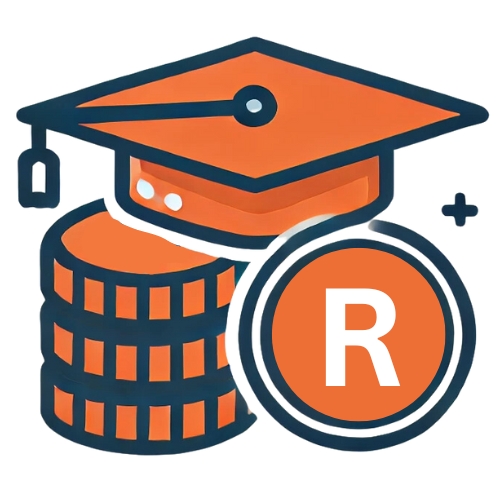
A personal loan serves as a practical financial solution, offering access to credit for larger expenses that may be difficult to cover immediately. It can also assist in streamlining debt management by consolidating multiple monthly instalments into a single, more straightforward payment. Regardless of the purpose, it is vital to ensure that a personal loan aligns with your specific financial requirements, that you can afford the repayments, and that you understand the terms and conditions associated with it.
Key Takeaways
- Minimum Age and Eligibility: In South Africa, you must be at least 18 years old to apply for a personal loan. Additional criteria, such as income proof and a valid South African ID, are typically required. Some lenders may have stricter age or income requirements depending on the loan type.
- Types of Loans Available: Personal loans come in various forms, including unsecured loans, which require no collateral but have higher interest rates, and secured loans, which use an asset as collateral and typically have lower interest rates. Alternatives like debt consolidation loans can simplify payments, while payday loans cater to short-term needs but come with higher costs.
- Role of Credit Score and NCA Protection: A strong credit score improves your chances of loan approval and better interest rates. The National Credit Act (NCA) protects borrowers by ensuring transparent terms, affordability checks, and measures to prevent over-indebtedness. It also offers resources like debt counselling for those facing financial difficulties.
What is a Loan?
A loan refers to a formal financial agreement where one party borrows money from another, usually a financial institution such as a bank or a lender. Loans come in various forms, including short-term loans, which are designed to be repaid within a matter of weeks or months, and long-term loans, such as home loans, which often have repayment periods extending up to 20 years.
When handled responsibly, a loan can provide the means to purchase or pay for something that is urgently needed but currently unaffordable. However, this convenience comes with the obligation to repay the borrowed amount through regular monthly instalments. These payments include not only the loan principal but also interest, meaning the total repayment will exceed the initial amount borrowed.
About Arcadia Finance
Get the loan you need with ease at Arcadia Finance. Choose from 19 trusted lenders, all accredited by South Africa’s National Credit Regulator, with zero application fees. Experience a hassle-free process designed to meet your financial goals.
How Personal Loan Applications Work
When applying for a personal loan, the process involves borrowing a specific amount of money, which must be repaid in regular monthly instalments over an agreed period. These instalments include both the loan amount and interest charges. The interest rate and repayment duration vary depending on the loan amount, the lender’s terms, and the repayment timeline you are comfortable with.
Personal loan applications are assessed individually. Approval or rejection depends on several factors, and the loan amount, along with repayment terms, is determined based on the following criteria:
- Your Credit Score: This reflects your creditworthiness, providing an overview of your existing debt and your history of managing debt and repayments.
- Your Income: Your earnings are a crucial factor in determining the loan amount you can qualify for. Lenders will assess whether your income is sufficient to cover the loan repayments while leaving you with enough for other living expenses.
What is Required When Applying for a Loan
To successfully apply for a loan in South Africa, applicants must meet certain criteria and provide specific documents. These include:
- A valid South African ID to confirm your identity and citizenship.
- Bank statements covering the last three months, which help lenders assess your financial stability and spending habits.
- Proof of income or employment, such as a recent payslip or an employment confirmation letter, to verify your ability to repay the loan.
Legal Age for Borrowing in South Africa
In South Africa, the legal age for borrowing money is set at 18 years old. This aligns with the broader legal framework that recognises 18 as the age of majority, where an individual is considered an adult under the law. At this age, a person gains the right to enter into legally binding agreements, including loan contracts, without the need for a guardian or co-signer. Financial institutions require borrowers to meet this minimum age to ensure they are legally eligible to assume financial obligations.
Financial Responsibility and Maturity: Why 18?
The age of 18 is not only a legal milestone but also reflects a general societal expectation of financial responsibility and maturity. At this age, individuals are presumed to have the cognitive ability and maturity to understand the implications of borrowing money, such as the importance of repayment schedules, interest rates, and the consequences of default. While this may vary from person to person, setting a standardised minimum age helps financial institutions maintain consistency and protect both lenders and borrowers from potential risks.
If you’re a young adult planning to apply for a personal loan, building your credit score early can make a significant difference in approval chances. Learn practical steps to get your score on track.

Loan Eligibility Criteria at Major South African Banks
| Bank | Minimum Age | Minimum Income | Employment Status | Required Documents |
|---|---|---|---|---|
| Standard Bank | 18 years | Not specified | Regular income | – Valid South African ID – Proof of residence (≤3 months old) – 1 month’s payslip – 3 months’ bank statements |
| Nedbank | 18 | R5,000/month (electronically paid) | Employed (permanent, fixed-term, self-employed) or pensioner | – Valid South African ID – Most recent payslip or employer letter – 3 months’ stamped bank statements |
| Absa | 18 years | R2,000/month (for loans ≥12 months); R1,500/month (for loans 2–6 months) | Regular income | – South African ID book or card – Last 3 months’ payslips or bank statements – Proof of residence (non-Absa customers) |
| FNB | 18 years | Not specified | Regular income (salary paid into bank account) | – South African ID – Proof of residence – Latest payslip – 3 months’ bank statements |
Why Age Restrictions Exist
Age restrictions are in place to shield young individuals from making financial commitments they may not fully understand. Younger people may lack the financial literacy or stable income required to manage loan repayments effectively. By setting a minimum age, lenders aim to reduce the risk of default and protect individuals from financial stress early in life.
Loan eligibility requirements encourage individuals to establish good financial habits before taking on debt. Age restrictions align with the assumption that older applicants are more likely to have a steady income, a credit history, and a better understanding of financial obligations. This approach fosters responsible borrowing and repayment behavior, benefiting both the borrower and the lender.
Alternatives for Younger Borrowers
For younger individuals who may not yet qualify for a personal loan due to age or lack of credit history, there are several viable alternatives to consider:

Borrowing from Family
Borrowing money from family members can be a practical and cost-effective solution for younger borrowers. Family loans often come without interest or with very low interest rates, making repayment more affordable. However, it’s essential to treat this arrangement with the same seriousness as any formal loan to avoid potential misunderstandings or strain on relationships. Setting clear terms and conditions, including repayment timelines, can help maintain harmony.

Student Loans
Student loans are specifically designed for those pursuing higher education. These loans typically come with favourable terms, such as lower interest rates and more flexible repayment options, making them an excellent choice for young borrowers focused on education. In South Africa, institutions like NSFAS (National Student Financial Aid Scheme) provide government-backed loans and bursaries to eligible students.

Guarantor Loans
Guarantor loans are an option for younger borrowers who lack a strong credit history or steady income. IIn this arrangement, a trusted individual, usually a parent or guardian, acts as a guarantor, agreeing to repay the loan if the borrower cannot.This added security for lenders makes it easier for younger people to access funds, but it also requires careful consideration by both parties to ensure the arrangement is manageable and fair.
Comparing Loan Types: Personal Loans, Student Loans, and Microloans
| Loan Type | Purpose | Eligibility | Key Features | Considerations for Younger People |
|---|---|---|---|---|
| Personal Loans | General use: debt consolidation, big purchases, or emergencies. | Must be at least 18 years old; strong credit score and steady income often required. | Flexible usage; moderate to high interest rates; repayment terms typically 12-60 months. | May be difficult to qualify due to lack of credit history or income stability. |
| Student Loans | Funding education-related expenses like tuition, books, or housing. | Often requires a parent or guardian as a co-signer; repayment typically starts after studies. | Lower interest rates; tailored for education; repayment flexibility. | A viable option for students, but co-signers are often mandatory. |
| Microloans | Small, short-term financial needs. | Less stringent eligibility; available to younger people with limited credit history. | Quick approval; small amounts; high interest rates; short repayment periods. | Easier to access but can lead to debt if not managed responsibly. |
Tips for First-Time Loan Applicants
Applying for your first personal loan can be both exciting and overwhelming. To ensure a smooth process and avoid common pitfalls, it’s essential to approach the application with preparation and awareness. Here are some practical tips for first-time loan applicants:
- Understand Your Financial Needs: Before applying, determine exactly how much money you need and ensure it aligns with your repayment capacity. Avoid borrowing more than necessary to minimise interest and repayment pressure.
- Check Your Credit Score: Your credit score plays a significant role in loan approval and the terms you’ll be offered. Obtain a free credit report to check your score and address any discrepancies before applying.
- Compare Loan Options: Shop around to find the best loan offers. Compare interest rates, fees, repayment terms, and additional features across different lenders to ensure you get the most suitable deal.
- Prepare Necessary Documents: Gather all required documentation, such as proof of income, identification, and bank statements, to streamline the application process. Having these documents ready shows you’re organised and serious about the loan.
- Understand Loan Terms and Conditions: Read the fine print carefully before signing any agreement. Pay attention to interest rates, repayment schedules, penalties for late payments, and any hidden fees. If something is unclear, ask the lender for clarification.
- Start Small: If you’re new to borrowing, consider applying for a smaller loan to build your credit profile. Successfully repaying a smaller loan can improve your creditworthiness for future, larger loans.
- Budget for Repayments: Ensure you have a realistic plan for making monthly repayments without compromising your essential expenses. A well-structured budget will help you stay on track and avoid defaulting.
- Avoid High-Interest or Predatory Loans: Be cautious of lenders offering “quick” or “guaranteed” loans with unusually high interest rates or vague terms. Stick to reputable financial institutions and registered credit providers.
Conclusion
A personal loan can be an effective financial tool when used responsibly, providing the means to manage larger expenses or consolidate debt into manageable payments. By understanding the various types of personal loans, meeting the necessary eligibility criteria, and considering alternatives, borrowers can make informed decisions that align with their financial goals. It’s essential to review the terms and conditions carefully, consider the long-term impact of interest rates and repayment terms, and ensure affordability to avoid unnecessary financial strain.
Frequently Asked Questions
The minimum age to apply for a personal loan in South Africa is 18 years. However, some lenders may have stricter requirements and set the minimum age at 21 or higher for specific loan products.
Commonly required documents include a valid South African ID, recent bank statements (usually the last three months), proof of income (such as a payslip), and proof of residence.
Personal loans in South Africa include unsecured loans, secured loans, debt consolidation loans, and payday loans, each tailored for different financial needs and circumstances.
Your credit score reflects your creditworthiness and impacts both loan approval and the interest rate offered. A higher credit score improves your chances of approval and may result in lower interest rates.
If you cannot make repayments, it’s important to inform your lender immediately. They may offer solutions such as restructuring the loan, extending the repayment term, or providing temporary relief. However, failing to address the issue can negatively affect your credit score and result in additional fees or legal action.






